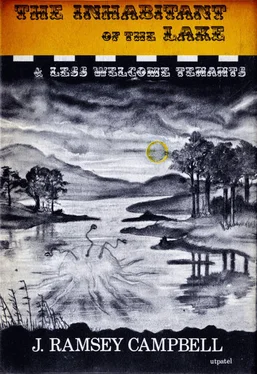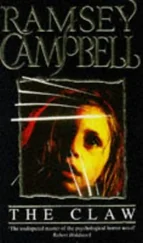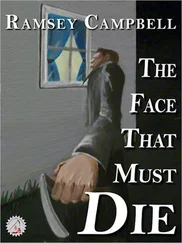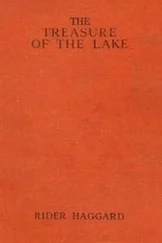As the visions began to overtake me in greater quantity, they acquired more definite connection, and it was not long before I realised what was now being put into my brain was a sort of history of the insect-race. Perhaps the most horrible part of the affair was the way I regarded the events and scenes now presented to me, not with the horror and disgust of a sane human being, but with the exact same impersonal observation of the insect-parasite. As the chronicles of the race were passed through my mind, I was , to all purposes, the insect which had become part of me. I write this now with more emotion than when I experienced the memories of the being — and that thought fills me with more terror than did the memories themselves.
So it was that I learned the history of the insect-race, and so it is that I write now what I learned. And horror can still be provoked in me by thoughts of what the insects from Shaggai may yet do on this earth.
IV: The Exodus From The Gulf
The beings had, I learned, originally come from Shaggai, a globe far beyond the reach of any earthly telescope, which orbited a double sun at the edge of the universe. Upon this planet they built their cities, full of globular domes for their habitations and pylons of that grey metal which composed the cone. The main buildings were almost all globular, entered by a doorless orifice at the top of each, through which the insects could fly — but there was one important building which was not globular, but pyramidical: the temple at the centre of each city. And the thoughts of the being grew oddly reticent on the subject of this temple, whence all the inhabitants would go to worship at ritual times; for never could I tap a memory of what was worshipped inside that grey metal pyramid. The only fact which became apparent was that, incredible as it sounds, the tenant of the temple was one living being, but was somehow the same being in each temple.
The life of the beings of the grey cities followed no definite pattern, except for certain observances. They would leave their domes as the blinding emerald light of the two suns rose above the horizon, and while a generally avoided group of priests flew to the temple, the rest went about personal business. None needed to eat — they lived by photo-synthesis of the green rays of the double star — and so they visited other planets, seeking new abnormalities which they, in their perversion, could aesthetically enjoy. At the time of birth of my informant, the race, needing to do no work, had sunk to an abysmal state of decadence. While on Shaggai they would torture slave-races from other worlds for pleasure; and when on other planets, they sought the most terribly haunted localities to view their horrors — with which pastime the early memories of the insect-being had been occupied. There was another practice of the insects which was not then fully revealed — but it was connected, it appeared, with what they practised on the witch-cult at their outpost on earth.
At any rate, the beings had set up outposts and built cities on many of the outer worlds, in case anything should ever make Shaggai uninhabitable; for they had had experience of what might crawl over the rim of the universe and conquer their world before then. So they were to some extent prepared when a catastrophe did indeed devastate their world, many aeons before their advent on earth. Even at the time when I visited their shrine, they had very little idea of what had really destroyed Shaggai; they had seen it happen from the beginning, but could only explain the cause vaguely — and, having viewed a vision of what they saw for myself, I did not wonder at their puzzlement.
It was at the dawning of one of those emerald-lit days that the object was first seen. Above the double disc on the horizon, and slowly approaching their planet, appeared a strange semi-spherical red globe. The edges were indistinct, while the centre was a sharply-defined point of crimson fire. At that time the approach of the sphere was so unnoticeable that few of the city's inhabitants remarked it; but by the third dawn the object was much nearer, so that the race's scientists began to study it. They decided, after much speculation, that it was not a star or planet, but some species of body which was composed of no recognizable substance; the — spectrum was completely unknown, and the substance must have come from a region where conditions were unlike those anywhere in this universe. Because of this vagueness of its identity they were uncertain of its probable effects on their planet — for the body was heading directly for Shaggai, and should reach it before the suns had set thrice more.
On the third day the globe was a huge red glow in the sky, blotting out the green suns and lighting everything with a crimson flame; but no heat emanated from it, and no other evidence of its existence met the insects besides the blood-red light. They were uneasy, for the menacing sphere in the heavens was very disturbing, and therefore many of them visited the triangular temple frequently for private worship. The being in my body had been one of those frequent visitors, and owed its life to being in the temple when the cataclysm struck. It had entered under the arched portal, where a portcullis-like sheet of translucent mineral would fall at any external threat, to protect the tenant inside. As the insect made to leave the temple after that act which it must practise before the tenant of the pyramid, it saw a prolonged crimson flash in the sky, speedily approaching the ground, while at the same time the protective shield crashed down in the temple entrance. The forty or so other beings which also were at worship clattered to stare through the shield at what was happening in the city outside.
As the red glow slowly faded, the buildings became again visible, as did the beings in the streets. The creatures and buildings had changed in some way during the cataclysm — for they glowed with that same crimson light, streaming from inside each. And the light became every moment brighter, changing from red — orange — blinding yellow to white, as the insect-beings writhed and clawed at themselves in helpless agony.
It was the way in which the temple was fortified that saved those inside. The radiation from the bursting globe was kept from affecting them long enough for them to use certain powers. By some obscure method of teleportation they transported the entire temple, with themselves, to the nearest planet on which they had a colony — the world of the faceless cylindrical beings, called Xiclotl by its inhabitants. As the devastated world of Shaggai faded from outside the shield, the insect-creature saw the buildings reel and the inhabitants burst asunder in momentary incandescence. And its last glimpse was of the globes of light which were now all that remained of the lords of Shaggai, as they sank to fill the ground with crimson radiation.
Upon their arrival on Xiclotl, the insects called the rest of their race from the other planetary colonies to join them. The faceless horrors of the planet were enslaved by the new ruling race, and because of their great strength and little brain-power, were driven to perform all tasks in building the new city of the insects on Xiclotl. These beings, which were subdued by one of the insects' instruments for focusing mind power to promote unpleasant nerve impulses, were naturally carnivorous and, if not enslaved in this way, might have eaten any slow-moving insect. However, it was relatively easy to force them to labour, and under their strivings the city speedily took shape.
The insects did not remain on Xiclotl for more than two hundred years, during which my informant had reached maturity. The reason for their leaving was one about which it would rather not have thought in detail, having to do with the faceless slaves and their somewhat primitive theology. They believed in a legendary plant-race which inhabited the bottom of a sheer-sided pit in the outer regions of the country in which the city lay. The religion of the planet's race demanded that periodic sacrifices be chosen from the race and throw themselves as food to the plant-gods in the pit. The insects did not object to this practice, so long as it did not remove so many beings as to draw on their labour force — at least, not until a group of insects followed one of the sacrifices to the pit. After that, however, the tale which the returning party told caused the more superstitious — including my informant — to teleport the temple again, together with a number of the race from Xiclotl as a means of labour, to a planet at the centre of the next galaxy. The insect-being which was pouring its memories into my brain had not actually seen what had occurred in the pit, so was not so explicit as usual; but what it remembered having heard was certainly disturbing. The returning party had seen the faceless creature leap from the edge of the pit and fall towards the abysmal darkness of the lower regions. Then came a splashing in that darkness, and a huge purple moist blossom rose from it, its petals opening and closing hungrily. But the greatest abnormality of the thing which splashed out of the pit was its green tentacles, tipped with many-fingered hands of unholy beauty, which it held yearningly towards the point where the sacrifices threw themselves off.
Читать дальше












